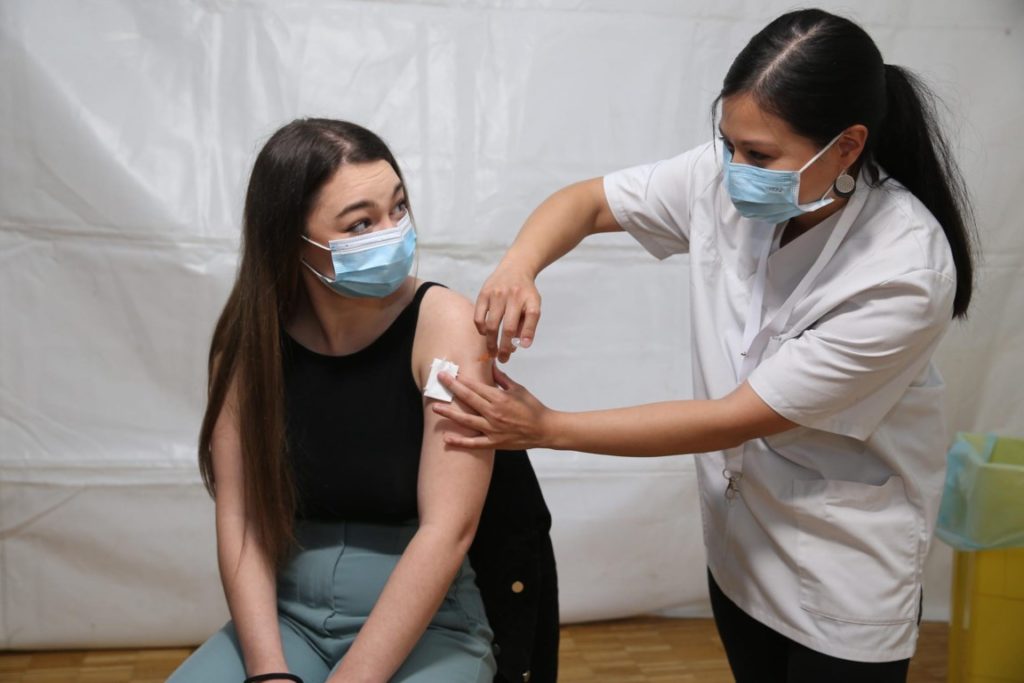Belgium's Superior Health Council has not yet issued advice on giving a booster vaccine to teenagers aged 12–17, but the country's Vaccination Taskforce will meet on Monday to formulate its own advice and hopefully bring some clarity.
As the European Medicines Agency (EMA) was expected to issue a recommendation in January on the issue of booster doses for teenagers but has remained silent, Belgium's health ministers requested an urgent opinion from the Superior Health Council last week.
However, the Superior Health Council has stated that there is "insufficient" scientific evidence to support the booster shot for 12- to 17-year-olds, especially against the Omicron variant. It is waiting for the official EMA recommendation and more scientific evidence before deciding its own position.
In the meantime, Belgium's Vaccination Taskforce is expected to issue advice on booster vaccines for teenagers to the Interministerial Conference (IMC) on Health.
"The Vaccination Taskforce will meet to discuss the matter from 15:00 on Monday afternoon. We will look at the Health Council's advisory report and are expecting to issue our own advice to the health ministers later today," a spokesperson for the Taskforce, Gudrun Briat, told The Brussels Times.
Related News
- Youngsters trying to get infected with Covid-19 in order to travel
- Belgium should offer booster dose to teenagers voluntarily, says Beke
But given that the Superior Health Council's advice depends on more scientific evidence from the EMA, the Taskforce will not have a lot to go on.
Last weekend, Flemish Health Minister Wouter Beke expressed frustration that the Health Council is "hiding behind the European Medicines Agency and passing the ball to the Vaccination Taskforce." Beke added that other countries have already come to a decision.
In the meantime, Beke already proposed offering 12 to 17-year-olds the booster on a voluntary basis, using an 'informed consent' form. This proposal will be discussed on Monday afternoon, Briat said.
In a statement to The Brussels Times on Monday, EMA said it has received and is evaluating an application to extend the use of the booster dose for Pfizer's Comirnaty vaccine to adolescents from 16 to 17 years of age.
"We are expecting the companies to submit shortly a similar application for a booster of Comirnaty in 12- to 15 year-olds. EMA will review these applications in an accelerated manner with the objective to reach an opinion as soon as possible."
Travel issues
The lack of clear advice on the booster dose for teenagers is threatening to complicate holiday plans during the Carnival break at the end of February.
Some European countries like Austria or Italy no longer consider vaccines older than six months valid for skiing or gaining access to bars or restaurants. In practice, this makes the booster dose necessary for most Belgian teenagers – who were vaccinated more than six months ago – unless they have a more recent recovery certificate.
This has led to a number of teenagers deliberately trying to get infected with the coronavirus in order to obtain a recovery certificate in time for travel during the upcoming holidays. This presents great risks to themselves and could put healthcare systems under undue pressure.
“We would not recommend young people infecting themselves," Joris Moonens, spokesperson for the Flemish Agency for Care and Health, told The Brussels Times last week. "Even if they are less likely to get very ill, there is always a risk of a more serious course of the disease, especially if you have not yet received the booster."

